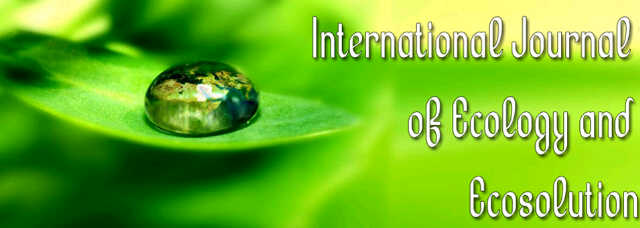Geochemical properties and agricultural suitability of groundwater at landfill site, Baghdad, Iraq
Raghad Salman Mouhamad, Samia Khalel, Muna Q. Ali, Saad Obaid Joda, Arif Nazir, Munawar Iqbal and Nadia Salman NasifInternational Journal of Ecology and Ecosolution
Published: December 14 2017
Volume 4, Issue 2
Pages 17-22
Abstract
Contamination of groundwater is considered as one of the major environmental problems. The groundwater resources are being utilized for drinking, irrigation and industrial purposes. There is growing concern on deterioration of groundwater quality due to geogenic and anthropogenic activities. This research aims to study the quality assessment through the estimation of Ca2+, Mg2+, Na+, K+, CO32–, HCO3–, Cl–, SO42–, EC, TDS and pH in the Landfill site of Baghdad city based on the analyses, parameters such as sodium adsorption ratio (SAR), sodium percentage, residual sodium carbonate (RSC), permeability index (PI), Gibbs Ratio I (for anion), Gibbs Ratio II (for cation), chloroalkali indices (CAL 1 and CAL 2) for anion and cation were calculated. Analytical results of groundwater samples show that they are severely polluted and incidentally found, estuaries and salt pans in the study area. The Gibbs plot indicates that the majority of groundwater samples fall in the evaporation dominant region, which indicates wastewater leaching interaction in the study area. This might be attributed to the type of wastes interactions, ion-exchange reactions and runoff of fertilizers from the surrounding agricultural lands on landfill site.
Keywords: Groundwater quality, geochemical analysis, agriculture, leaching, Iraq.
Full Text PDF
